Climate Change and Environmental Issues
Our Approaches, Strategies, Targets & Initiatives
SAMEE Group adopts a risk-informed, phased approach to managing climate change and broader environmental risks,
aligning operational priorities with long-term resilience and regulatory expectations. Central to this approach is a focus
on ensuring full compliance with environmental regulations, enhancing emissions monitoring and reduction, improving
energy and water efficiency, and preparing for potential climate-related disruptions. These efforts are guided by a principle
of scalability and are integrated into both site-level operations and capital investment planning to ensure pragmatic and
financially responsible implementation.
Climate governance within SAMEE Group is overseen by the Risk and Sustainability Committee, with performance indicators
and progress toward climate goals tracked at the Group level. Day-to-day environmental performance is driven by close
coordination among Engineering, Facilities, Environment, Health and Safety (“EHS”), and the sustainability teams, reflecting
a multi-functional accountability structure that enables cross-disciplinary alignment and execution.
SAMEE Group’s climate strategy is built on four core pillars. The first pillar is Emissions Measurement and Reduction,
which focuses on strengthening Scope 1 and Scope 2 GHG accounting, with plans to progressively expand into Scope
3 categories where data is material and reliable. The second pillar, Environmental Monitoring and Performance Tracking,
entails the monthly collection and analysis of key environmental indicators such as energy consumption, water usage,
and waste generation, to support emissions reduction, ensure regulatory compliance, and inform long-term performance
benchmarking. The third pillar, Energy Transition and Efficiency, involves the deployment of solar photovoltaic (“PV”)
systems and site-level energy efficiency enhancements to drive down operational emissions. The fourth pillar, Stakeholder
Engagement and Transparency, centres on strengthening disclosures in alignment with the Bursa Malaysia Climate Reporting
Guide, while progressively preparing for conformance with IFRS S2 and the Global Reporting Initiative (“GRI”) standards.
Throughout FY2025, SAMEE Group executed several key climate-related initiatives. A 1,487 kWp rooftop solar system,
commissioned in FY2024, served as a flagship project, with additional installations scheduled in the coming years. The
Group completed comprehensive Scope 2 emissions accounting using audited utility data and emission factors and
continued enhancing data accuracy and site-level coverage. Operationally, environmental awareness campaigns such as
“Green Lifestyle at Work,” “Carpooling Encouragement,” and “Plant-a-Tree” were conducted to build internal ownership
and awareness of climate objectives. In parallel, selected facilities implemented automated water flow sensors and leak
detection systems to improve real-time monitoring and identify efficiency opportunities. The Group also introduced RO
reject water reuse systems, allowing reclaimed water to be used for non-potable purposes such as toilet flushing and
landscaping. In addition, rainwater harvesting systems were installed to reduce dependence on treated municipal water,
further contributing to water resource conservation.

Energy Management
Our Approaches, Strategies, Targets & Initiatives
SAMEE Group adopts a pragmatic and risk-informed
approach to energy management, underpinned by a
culture of operational excellence and long-term value
creation. While energy costs remain a manageable share
of total operational expenditure, the Group views energy
governance as a strategic lever to reduce intensity,
integrate cleaner technologies, and align with global
sustainable development objectives. In recognising the
urgency of decarbonisation, energy management is
not only an internal efficiency driver but also a critical
enabler of sustainable value chain transformation. This
positions SAMEE Group as a responsible industrial leader
committed to accelerating the global transition toward a
low-carbon, net-zero future.
The Group’s energy strategy is anchored on three
interrelated pillars: cost efficiency, environmental
stewardship, and regulatory preparedness. Regular
energy audits are conducted to assess consumption
trends and uncover optimisation opportunities. These
insights guide a suite of continuous improvement
projects, from system upgrades and equipment retrofits
to the deployment of high-efficiency technologies.
Project selection is governed by rigorous criteria,
including technical feasibility, return on investment, and
alignment with SAMEE Group’s broader sustainability and
productivity goals. Recognising the exposure to energy
price volatility and evolving carbon compliance risks, the
Group proactively invests in clean energy infrastructure
and internal awareness programmes to build long-term
resilience.
In FY2025, SAMEE Group operationalised several high
impact initiatives. At its Rojana facility in Thailand, a full
scale LED lighting conversion completed in September
2024 led to a 20% reduction in lighting-related energy
usage, while improving brightness by 120% and reducing
thermal load from 226 high-bay fixtures, enhancing
occupant comfort and cooling efficiency. At the Ban
Bueng site in Thailand, energy performance was further
improved through architectural adjustments including
ceiling height reductions, wall insulation upgrades, and a
transition to energy-efficient lighting, collectively yielding
a 12% energy saving in core production zones.
Concurrently, the Group expanded rooftop solar
installations in selected Malaysian sites, contributing 2,082
MWh of renewable energy in FY2025 toward its FY2030
target of 10,000 MWh annually. Complementary efforts
include the installation of solar-powered streetlights,
pilot EV charging infrastructure, and the progressive
electrification of internal logistics fleets. Additional
optimisation initiatives continue to reinforce site-level
efficiency, such as air compressor leakage control,
equipment retrofitting, load scheduling, and passive
thermal management.
Employee engagement remains pivotal to execution.
Through structured campaigns promoting energy
conscious behaviours, including carpooling, power-down
practices, and sustainability awareness activities, the
Group ensures that technical advancements are matched
by behavioural alignment. These initiatives are phased in
based on each site’s intensity profile, technical feasibility,
and strategic value, reflecting SAMEE Group’s disciplined
yet forward-leaning commitment to energy stewardship
and climate resilience.

Waste and Hazardous Materials Management
Our Approaches, Strategies, Targets & Initiatives
Effective waste and hazardous materials management is essential for ensuring regulatory compliance, protecting human
health, and minimising environmental impact.
SAMEE Group adopts a disciplined, compliance-driven approach to waste and hazardous materials management, ensuring
that all practices align with regulatory requirements across its operations in Malaysia, Singapore, and Thailand. Operational
teams implement site-specific waste protocols tailored to local legal frameworks, with a strong emphasis on source
segregation, the controlled handling of scheduled waste, and secure disposal through licensed contractors. By prioritising
strict oversight and proactive risk mitigation, the Group aims to uphold environmental integrity and reduce waste-related
impact across the value chain.
Waste management performance is continuously monitored across all key operational sites, with periodic audits conducted
to validate documentation accuracy, container condition, and employee compliance. The Group’s strategy not only focuses
on regulatory conformance but also seeks to minimise waste generation through process optimisation, resource recovery,
and widespread employee engagement. This multi-layered approach integrates environmental stewardship into the daily
operations of every facility.
SAMEE Group’s waste strategy is anchored on several core pillars. These include enhancing segregation and source
reduction through frontline system upgrades and process redesign; maintaining strict compliance in the handling of
hazardous and scheduled waste with full traceability of transport and disposal; promoting recycling and resource efficiency
in collaboration with certified recovery partners; and cultivating a strong internal culture of environmental accountability
through training and behavioural change programmes. The strategy also addresses supply chain alignment, encouraging
packaging reduction and responsible waste management practices among vendors and subcontractors. Additionally,
targeted process improvements, such as optimising machinery to reduce coolant consumption and recycling coolant in a
timely manner, have resulted in a measurable decline in spent coolant volumes.
In FY2025, SAMEE Group expanded the scope and effectiveness of its waste and hazardous materials management through
a combination of operational controls, digital tracking tools, and staff empowerment. Colour-coded bins, improved signage,
and standardised collection schedules were rolled out across production and administrative areas to increase waste sorting
accuracy and recycling rates. Employees received annual training on hazardous materials handling, labelling protocols,
and updated classification systems in line with local environmental legislation and Certified Environmental Professional in
Scheduled Waste Management (“CePSWaM”) guidelines. All hazardous waste continued to be managed by fully licensed
contractors registered with the relevant environmental authorities, ensuring full legal compliance and traceability from on
site storage to final treatment.
To support circular economy goals, the Group is also strengthening various employee-driven initiatives. These included
cooking oil recycling, food waste composting, paper reduction efforts, and the installation of water dispensers to eliminate
single-use bottles. Reusable containers were distributed in high-traffic zones to encourage sustainable habits, complemented
by awareness campaigns such as Say No to Plastic, SAM Recycle Week, and Planting for a Sustainable Future, the latter of
which included the distribution of potted plants and the promotion of native landscaping.
Externally, SAMEE Group expanded its environmental stewardship through volunteer activities such as beach clean-ups,
mangrove replanting, tree planting and community-based plogging events. These initiatives reflect the Group’s commitment
to embedding compliance, efficiency, and sustainability into the core of its waste management practices while fostering a
broader culture of environmental responsibility across and beyond its operations.
Management of Scheduled Waste

x
![Spotlight Image]()
CONTENTS
PERFORMANCE REVIEW
SUSTAINABILITY


